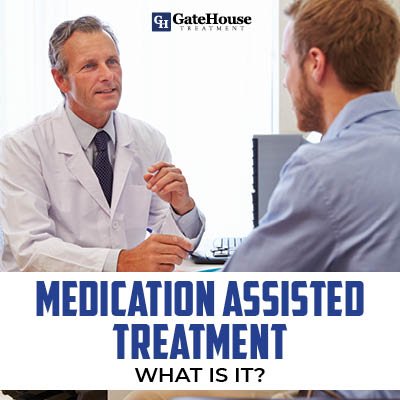
The most commonly used medications for MAT (Medication Assisted Treatment) are Vivitrol (Naltrexone), Suboxone, and Subutex. Most harm reduction methods are geared toward opiate abuse, and some also work well for alcohol abuse. The main difference in the medications is that some are narcotics, while others are not. Subutex and Suboxone are both classified as narcotics and can still be abused. Vivitrol and Naltrexone are both non-narcotic and are safe for use in a medically supervised situation.
Medically Assisted Treatment: Burprenorphine
To understand the difference between Suboxone, Subutex, and other medications like Vivitrol, you have to know how they work in the body. Subutex and Suboxone are both Buprenorphine, which is a partial opioid agonist/antagonist. This means that they stick to the opioid receptors in the brain, they activate the opioid receptors and make the body think that it has a sufficient amount of opioids, so the body does not go into withdrawal. They also stick to the receptors for a much longer time than abused opiates such as heroin or prescription opioid medications.
The danger is when these drugs are abused. The misuse of them, which can be from taking more than the prescribed dose or taking them in any way other than sublingually, such as snorting them or injecting them. One thing to be aware of however is that the Naloxone in Suboxone can cause you to go into precipitated withdrawal when abused. Taking Subutex which doesn’t have the Naloxone in it, can also cause you to go into precipitated withdrawal.
The precipitated withdrawal occurs from taking Suboxone or Subutex when withdrawal symptoms aren’t present or aren’t present at the proper threshold to avoid the onset of precipitated withdrawal. The Buprenorphine goes in, removes any remaining full agonist opioids on the opioid receptors, and replaces them with the Buprenorphine. With it being a partial agonist, it doesn’t satisfy the brain in the same way full agonists do. The Naloxone that is present in Suboxone is mainly used to deter people from abusing it. Although they don’t produce the same euphoria effect that a full agonist does, the user can still get a “high” from them.
Medication Assisted Treatment: Vivitrol and Naltrexone
Vivitrol is a non-narcotic opioid antagonist, meaning it has absolutely no potential for abuse. It can either be given in a once-monthly shot or a pill (Naltrexone) that is taken every day. It is given at your doctor’s office, or it is a prescription for a once-daily pill. Vivitrol requires that you have been detoxed from all opioids for at least 7-14 days as to not go into extreme opiate withdrawal.
Vivitrol, Subutex, and Suboxone are all also used as anti-craving medications. The difference is that while Subutex and Suboxone bind to the opioid receptors as a partial agonist, they still activate the opioid receptors. With Vivitrol, it attaches to the opioid receptors and blocks any opioids from producing a euphoric effect. Vivitrol is used in combination with therapy, or counseling and is merely to help patients from returning to opioid dependence until the underlying issues are addressed. It isn’t a maintenance medication where you become physically dependent on like Subutex or Suboxone. Vivitrol and Naltrexone have also helped patients struggling with alcohol abuse.
Using Vivitrol as part of a Medication Assisted Treatment plan, is something that should only be done in conjunction with a licensed, certified, and experienced addiction treatment provider and doctor. As with any serious medical condition, a doctor’s supervision (or similar level of clinician), is important in order to remain safe.
There have been many instances where patients sell their Suboxone or Subutex prescriptions and continue using illicit drugs. Suboxone and Subutex can become a slippery slope for many people when not administered in a safe, supervised, clinical environment. That’s why we don’t provide clients with anything that they may become addicted to.
If you or someone you love has been struggling with opioid dependence, contact us today. You can reach out to GateHouse Treatment at (855) 448-3588, we are here for you 24/7, your addiction doesn’t have to continue endlessly.
- Cymbalta Withdrawal: Causes, Symptoms, And Management - October 12, 2023
- Boredom in Recovery: 5 Tips to Avoid Relapse - October 6, 2023
- Overconfidence and Rehab: Avoiding Relapse - October 4, 2023




